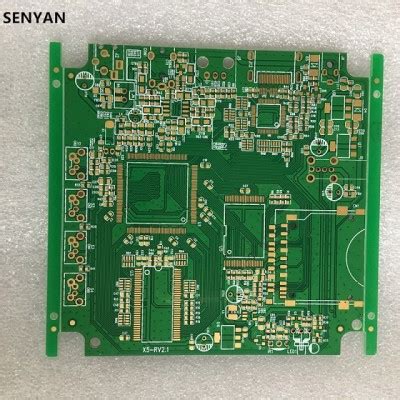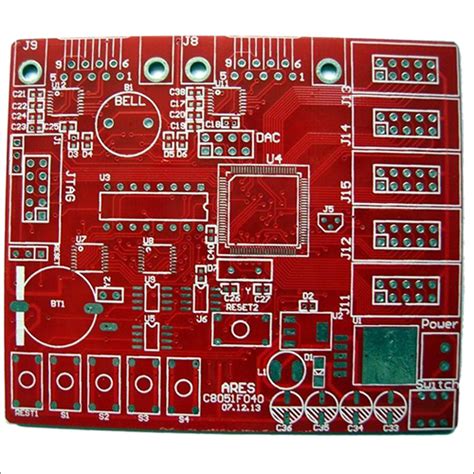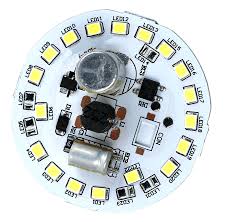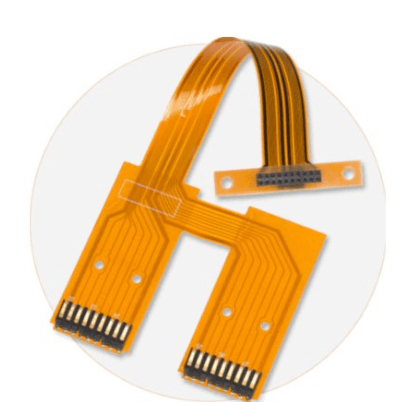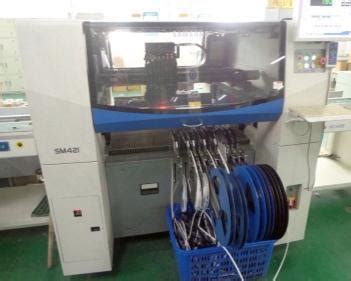Revolutionizing Electronics with Advanced Circuit Boards
Key Takeaways
In the world of modern electronics, advanced circuit boards stand as a beacon of innovation, fundamentally changing how devices are designed and manufactured. One of the most significant aspects of this transformation is the evolution of pcb manufacturing processes that enhance both performance and reliability. As you explore this field, you’ll find that pcb manufacturing companies are adopting cutting-edge technologies, which not only optimize the pcb manufacturing cost but also improve product durability and functionality. Emphasizing advanced materials in these manufacturing techniques, these companies ensure that circuit boards can handle increasingly complex electronic demands. Ultimately, your understanding of these manufacturing innovations will shed light on how they contribute to the burgeoning needs of today’s fast-paced electronic landscape and prepare you for the future trends reshaping the industry. Through this lens, you can appreciate why investing in a pcb manufacturing business is not just timely, but essential for those looking to spearhead advancements in technology.
Introduction to Advanced Circuit Boards and Their Importance
In today’s rapidly evolving technological landscape, advanced circuit boards (PCBs) play a critical role in the development and functionality of electronic devices. Their significance lies in their ability to support complex electronic components, ensuring that devices operate efficiently and reliably. This importance is magnified as you consider the increasing demand for higher performance and innovative functionalities in consumer electronics, automotive systems, and industrial applications.
The intricacies of pcb manufacturing are paramount when it comes to producing these advanced circuit boards. By leveraging state-of-the-art technologies, pcb manufacturing companies can create robust designs that cater to various specifications. As a result, you’ll find that the pcb manufacturing cost reflects not only the materials used but also the cutting-edge processes that ensure high-quality production.
Moreover, the competitive landscape of the pcb manufacturing business encourages a continuous push for innovation, leading to better materials and designs that enhance performance while maintaining cost-effectiveness. This evolution doesn’t merely optimize existing designs but opens avenues for new applications that were once thought impossible.
To illustrate this further:
| Feature | Importance |
|---|---|
| High-density interconnect | Enables compact design solutions |
| Customizable layers | Allows for tailored functionality |
| Advanced materials | Improves durability and conductivity |
| Cost efficiency | Reduces overall production expenses |
“Investing in quality advanced circuit boards today means embracing the future of technology tomorrow.”
Your understanding of this landscape informs not just procurement decisions but also shapes how you approach your projects in electronics design and development. As you delve deeper into this field, appreciate how these advancements collectively elevate your products, making them more capable and future-ready.
Key Innovations in Circuit Board Design
In the rapidly evolving realm of electronics, advanced circuit board design stands at the forefront of innovation. You may have noticed that pcb manufacturing has transformed significantly, with companies adopting cutting-edge methods that enhance functionality and streamline processes. The latest pcb manufacturing companies are leveraging state-of-the-art technology to create more compact and robust designs, which support high-density applications and reduce overall size without compromising performance. Additionally, the focus on pcb manufacturing cost has encouraged the exploration of cost-effective materials and processes that maintain quality while ensuring affordability—key factors that can benefit your business in this competitive landscape. Innovations like multilayer boards and flexible designs allow for greater versatility in application, enabling a wider range of devices to enhance your everyday technology experience. As you explore these advancements, consider how they can propel your projects forward with improved reliability and efficiency, ultimately setting new benchmarks for what’s possible in electronics.
Manufacturing Techniques Revolutionizing Electronics
In the ever-evolving field of electronics, pcb manufacturing techniques are at the forefront of innovation. As you explore the landscape of modern technology, it becomes clear that the methods employed by pcb manufacturing companies play a crucial role in enhancing the performance and reliability of devices. These advanced techniques include processes such as surface mount technology (SMT) and various automation techniques that significantly minimize production time and costs. By embracing precision engineering and high-throughput methods, these firms are not just reducing pcb manufacturing cost but also increasing the quality of each circuit board produced.
Moreover, the integration of advanced materials is transforming how these boards function, allowing for greater efficiency and adaptability in real-world applications. As a result, understanding these pcb manufacturing business practices can provide you with valuable insights into selecting the right partners and technologies for your projects. Ultimately, keeping abreast of these trendy manufacturing innovations can enhance your competitive edge in a market increasingly driven by technological advancements. For more information on how to leverage these cutting-edge techniques, consider resources like Andwin PCB.
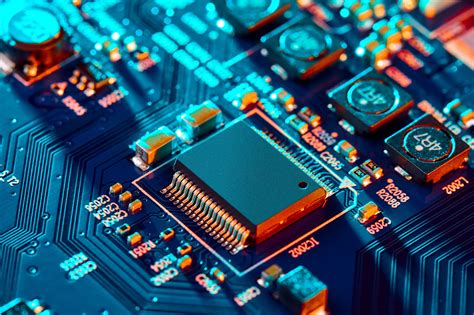
Enhancing Performance through Advanced Materials
The foundation of next-generation electronics lies in advanced circuit boards, which leverage state-of-the-art materials to significantly enhance performance. By incorporating high-frequency substrates and thermal management materials, these circuit boards can support faster signal transmission and reduce heat generation, ensuring your devices function seamlessly under demanding conditions. Many pcb manufacturing companies are now focusing on innovative materials such as flexible substrates and high-dielectric materials, which provide the necessary adaptability and efficiency that modern electronics require. These advancements not only lower the pcb manufacturing cost by streamlining production processes but also empower manufacturers to push the boundaries of product design. Understanding the pivotal role of material selection in the pcb manufacturing business can transform how components are engineered, ultimately leading to more reliable and efficient products. As you navigate through this evolving landscape, consider how your selection of advanced materials can not only enhance performance but also redefine the standards in your electronic applications.
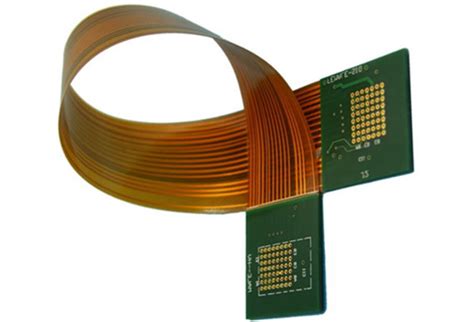
Reliability and Efficiency: The New Standard
In the ever-evolving world of electronics, reliability and efficiency have become the hallmarks of progress, particularly when it comes to advanced circuit boards. As you delve into the inner workings of today’s technology, it’s clear that these components serve as the backbone for many devices. Designed with precision, these circuit boards not only prolong device lifespan but also minimize downtime, which is crucial for both consumers and manufacturers alike. This shift towards enhanced reliability is directly influenced by innovations in pcb manufacturing, where rigorous testing and advanced materials come into play. By selecting reliable pcb manufacturing companies, you can ensure that your projects meet industry standards without compromising on quality. Furthermore, understanding the intricacies of pcb manufacturing cost is essential; investing in superior materials from reputable manufacturers often yields long-term savings and better performance. The landscape of electronics hinges on this careful balance between reliability and efficiency; as your goal is to adopt these advanced solutions, recognizing the transformative potential in the pcb manufacturing business can position you ahead of the curve in an increasingly competitive market.
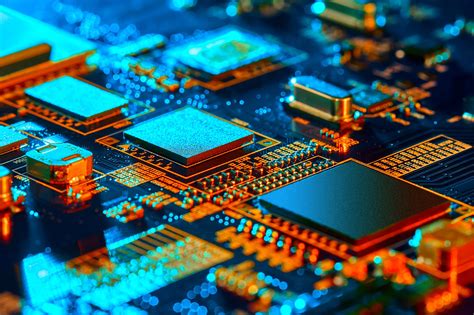
Applications of Advanced Circuit Boards in Modern Technology
The versatility of advanced circuit boards makes them pivotal in numerous applications across various industries. From consumer electronics to automotive systems, these PCBs (Printed Circuit Boards) play a crucial role in enhancing functionality and reliability. Companies focus on cutting-edge pcb manufacturing methods to meet the increasing demands for performance and miniaturization, leading to the creation of compact and efficient devices. For instance, in the realm of telecommunications, advanced circuit boards have enabled faster data transmission and greater connectivity, essential for the rise of 5G networks. Similarly, in medical technology, pcb manufacturing companies are developing boards that support complex diagnostics and life-saving monitoring systems. The pcb manufacturing cost can vary significantly depending on the complexity and scale of production; however, investing in advanced circuit board technologies often results in long-term savings through improved performance and reduced failures. As you explore these applications, consider how a robust pcb manufacturing business not only enhances product offerings but also drives innovation across industries, setting new standards for what is possible in modern technology.
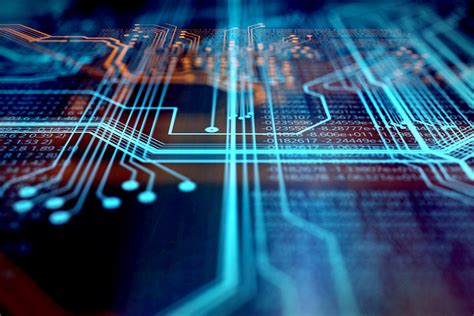
Future Trends in Circuit Board Development
As we look ahead, the landscape of advanced circuit boards is poised for significant transformation. Emerging pcb manufacturing trends are focusing on miniaturization and increased functionality. This shift enables pcb manufacturing companies to create boards that support more complex designs while using less space. You may encounter intelligent materials becoming more prevalent, offering enhanced thermal management and durability. Moreover, the adoption of automation in the pcb manufacturing business aims to reduce costs and streamline processes, allowing for faster production cycles without compromising quality. Understanding these advancements can help you appreciate how they contribute to the overall pcb manufacturing cost, potentially leading to more affordable end products. As such innovations continue to unfold, you will witness how these advanced circuit boards not only improve electronic devices but also set new standards for performance and sustainability in technology development.
Conclusion: The Impact of Advanced Circuit Boards on the Electronics Industry
The influence of advanced circuit boards on the electronics industry cannot be overstated. As you delve into the world of pcb manufacturing, it becomes clear how these innovative designs and techniques are redefining device performance and reliability. Companies focused on pcb manufacturing are not just increasing their output; they are fundamentally changing the landscape of technology with enhanced capabilities and efficiency. With modern pcb manufacturing companies adopting cutting-edge approaches, the overall pcb manufacturing cost is being optimized, enabling businesses to achieve a balance between quality and affordability. This shift is crucial as it empowers your projects with superior technology without inflating budgets. The future of your electronics development relies heavily on understanding these advancements in both materials and processes, ultimately leading to a pcb manufacturing business that aligns with evolving market demands. In summary, advanced circuit boards are at the forefront of technological progress, setting new standards that you can leverage for enhanced innovation and success in your projects.
Conclusion: The Impact of Advanced Circuit Boards on the Electronics Industry
The evolution of advanced circuit boards has truly reshaped the electronics landscape. As you delve into this field, you’ll notice that pcb manufacturing processes have become more sophisticated, integrating cutting-edge technologies that enhance the performance and reliability of electronic devices. The emergence of dedicated pcb manufacturing companies signifies a shift towards specialized approaches, allowing for tailored solutions to meet unique consumer demands. With every innovation in design and materials, you can observe a direct effect on the overall efficiency of devices—something that is increasingly crucial in today’s tech-driven world.
In your exploration of this area, consider the implications of pcb manufacturing cost; while there may be an initial investment required for advanced materials and techniques, the long-term benefits include not only cost savings but also improved product longevity. This focus on sustainability rushes forward with many pcb manufacturing businesses pivoting towards environmentally friendly practices that not only comply with regulations but often exceed them.
Ultimately, as you engage with these advancements, you will find that the integration of advanced circuit boards is not just enhancing current technologies but also setting new standards, paving the way for future developments in the electronics industry. This continuous cycle of innovation ensures that you remain at the forefront of technological progress, ready to tackle new challenges and opportunities as they arise.
FAQs
What is PCB manufacturing?
PCB manufacturing refers to the process of creating printed circuit boards (PCBs) that serve as the backbone of electronic devices. This involves designing the circuitry and then fabricating it using various materials and techniques.
How do I choose a PCB manufacturing company?
When selecting a PCB manufacturing company, consider their reputation, production capabilities, quality control processes, and customer service. Researching their experience in particular technologies or industries relevant to your needs can also be helpful.
What factors affect PCB manufacturing cost?
The PCB manufacturing cost can vary significantly based on several factors, such as the complexity of the design, the materials used, production volume, and any additional services required like assembly or testing.
Is it profitable to start a PCB manufacturing business?
Starting a PCB manufacturing business can be profitable if you understand your target market and establish efficient operations. Keeping up with industry trends and technological advancements is essential for long-term success.
For more details on how to effectively manage your PCB needs and learn about advanced techniques in this field, please click here: Andwin PCB Manufacturing

